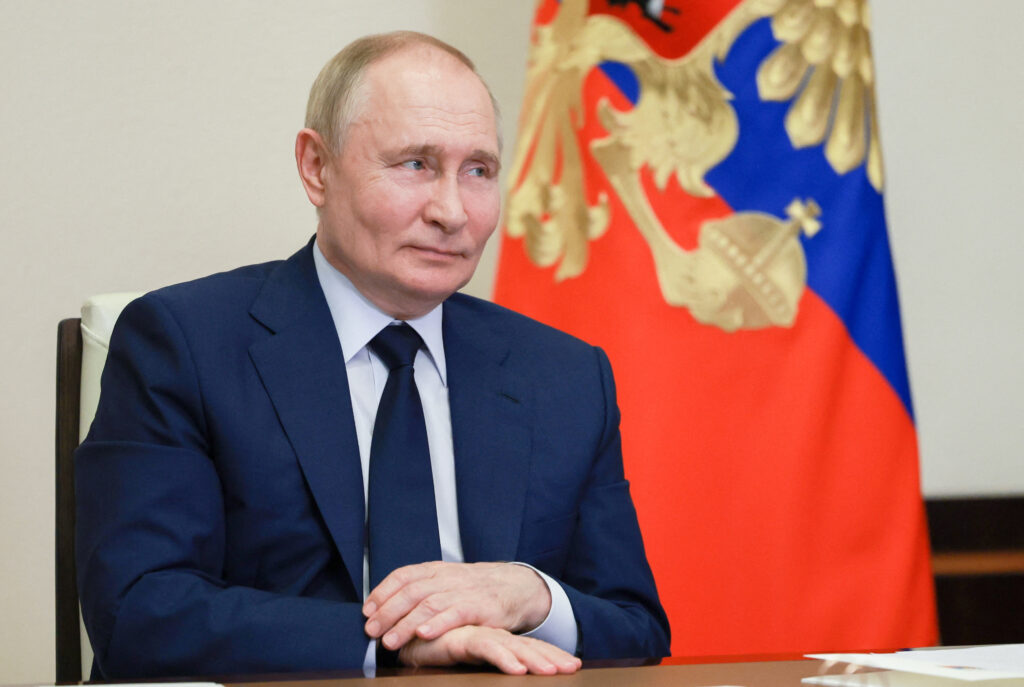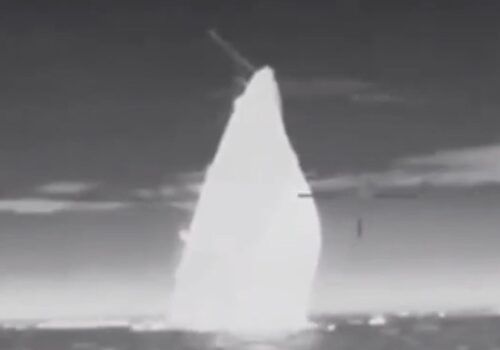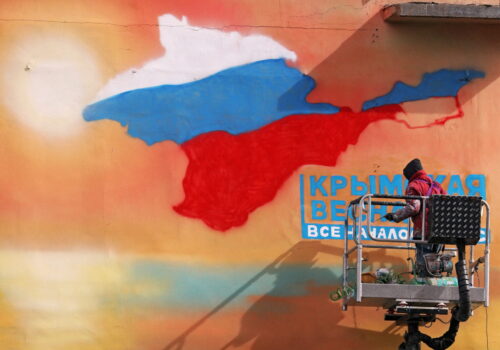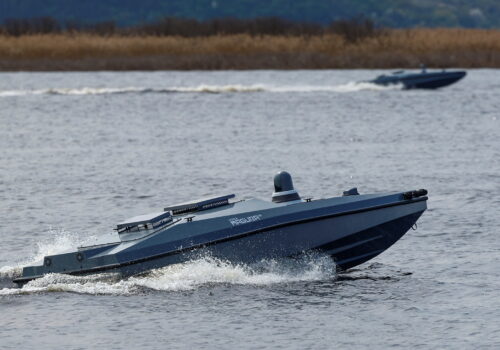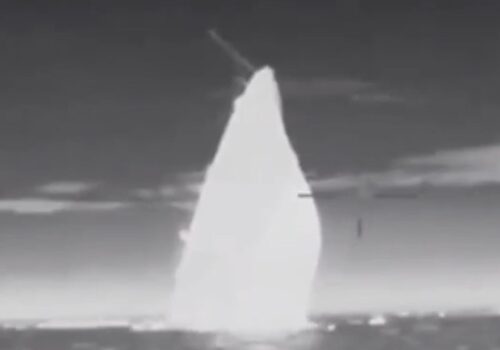
Putin is convinced he can outlast the West and win in Ukraine
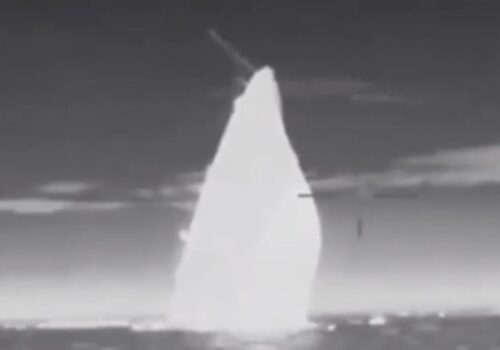
The annual NATO summit in early July resulted in a range of encouraging statements and practical measures in support of Ukraine. However, this widely anticipated gathering in Washington DC failed to produce the kind of decisive steps that could convince Vladimir Putin to end his invasion.
It was already clear some time before the NATO summit that there would be no serious discussion of a membership invitation for Ukraine. Instead, the emphasis would be on improving the existing partnership, with alliance leaders preserving as much room to maneuver as possible when dealing with the Russo-Ukrainian War.
Post-summit coverage focused on the official communique declaring Ukraine’s “irreversible path” to future NATO membership, but not everyone saw the wording of the joint statement as a breakthrough. Indeed, some skeptics interpreted this latest rephrasing of NATO’s open door for Ukraine as an indication that the alliance is still no closer to agreeing on a specific time frame regarding Ukrainian membership.
The summit was not a complete anticlimax, of course. A number of countries pledged additional air defense systems to Ukraine, meeting one of Kyiv’s most urgent requests to help protect the country from Russian bombardment. There were announcements regarding the imminent arrival of the first F-16 fighter jets in Ukraine, while additional mechanisms to coordinate weapons deliveries and enhance cooperation were unveiled.
NATO members also agreed in Washington to allocate forty billion euros for Ukrainian military aid next year. While this figure is certainly significant, it falls far below the level of funding needed to ensure Ukrainian victory. This is not a new issue. While the collective GDP of the West dwarfs Russia’s, Western leaders have yet to mobilize their financial resources to provide Ukraine with an overwhelming military advantage. As a consequence, it is the much smaller Russian economy that is currently producing more artillery shells than the entire Western world.
Stay updated
As the world watches the Russian invasion of Ukraine unfold, UkraineAlert delivers the best Atlantic Council expert insight and analysis on Ukraine twice a week directly to your inbox.
The modest progress made at the NATO summit reflects a lack of urgency that has hampered the Western response ever since the onset of Russia’s full-scale invasion. There is little chance this hesitancy will provoke a change of heart in Moscow. On the contrary, Russian policymakers are far more likely to regard the West’s current posture as proof that the war is going according to plan.
Unlike the West, the Kremlin has a clear and coherent vision for a future Russian victory in Ukraine. This involves gradually wearing down Ukrainian battlefield resistance with relentless high intensity combat along the front lines of the war, while extensively bombing civilian infrastructure and population centers across the country.
In parallel to these military measures, Russia will also continue to conduct diverse influence operations targeting Ukrainian and Western audiences, with the goal of undermining morale and sowing division. This will leave Ukraine increasingly isolated and exhausted, leading eventually to collapse and capitulation.
The Russian authorities believe Ukraine will struggle to maintain the attention of its Western allies, and are encouraged by growing signs that many in the West now view the invasion as a stalemate. Putin himself appears to be more confident that ever that the West will lose interest in the war, and expects Western leaders to reluctantly pressure Kyiv into a negotiated settlement on Russian terms.
Eurasia Center events
Since the invasion began nearly two and a half years ago, Western leaders have failed to demonstrate the kind of resolve that would force Putin to revise his expectations. Instead of flooding Kyiv with the very latest tanks, jets, drones, and missiles, Ukraine’s partners have consistently slow-walked military aid while imposing absurd restrictions on the use of Western weapons.
The West’s messaging has been equally inadequate. Rather than publicly committing themselves to Ukrainian victory, Western leaders have spoken of preventing Ukrainian defeat and of standing with Ukraine “for as long as it takes.” This is not the language of strength that Putin understands.
Confronted by continued signs of Western indecisiveness, the Russian dictator is now escalating his demands. His most recent peace proposal envisaged Ukraine ceding all lands already occupied by Russia along with significant additional territory not currently under Kremlin control. There can be little doubt that he remains as committed as ever to the complete surrender and subjugation of Ukraine.
Putin knows he could not hope to match the collective might of the democratic world, but this does not discourage him. Instead, he fully expects continued Western weakness to hand Russia an historic victory in Ukraine. Unless the West is finally prepared to translate its vast financial, military, and technical potential into war-winning support for Ukraine, he may be proved right.
Mykola Bielieskov is a research fellow at the National Institute for Strategic Studies and a senior analyst at Ukrainian NGO “Come Back Alive.” The views expressed in this article are the author’s personal position and do not reflect the opinions or views of NISS or Come Back Alive.
Further reading
The views expressed in UkraineAlert are solely those of the authors and do not necessarily reflect the views of the Atlantic Council, its staff, or its supporters.

The Eurasia Center’s mission is to enhance transatlantic cooperation in promoting stability, democratic values and prosperity in Eurasia, from Eastern Europe and Turkey in the West to the Caucasus, Russia and Central Asia in the East.
Follow us on social media
and support our work
Image: Russian President Vladimir Putin takes part in a ceremony launching new metallurgical facilities, via a video link at the Novo-Ogaryovo state residence outside Moscow. July 15, 2024 (Sputnik/Vyacheslav Prokofyev/Pool via REUTERS)
